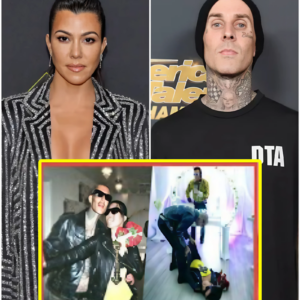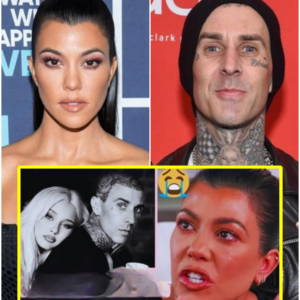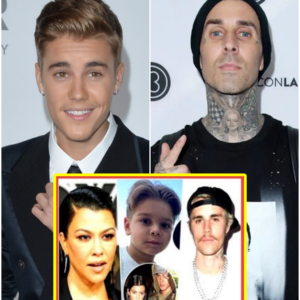Corey Feldman, a former child actor, has long been vocal about the dark underbelly of Hollywood, exposing the exploitation and abuse that he and many others have endured. His revelations have sparked critical conversations about the systemic issues within the entertainment industry, but they have also faced significant resistance and suppression.
Feldman rose to fame with his role in the 1985 film The Goonies, entering the industry at the tender age of three. At such a young age, informed consent was impossible, and his parents, particularly his mother, made crucial decisions about his career. Feldman alleges that his mother not only pushed him into the industry but also exploited his earnings. This pattern of parental exploitation is a common issue faced by many child stars, leading some, like Feldman, to emancipate themselves legally to protect their finances and well-being.
Throughout his career, Feldman experienced inappropriate behavior from industry insiders and even his own family. His struggles with substance abuse in later life were partly a result of the trauma he endured as a child. In 2013, Feldman courageously released a memoir detailing the mistreatment he and his co-star, Corey Haim, faced at the hands of powerful men in Hollywood. These abuses occurred when they were just 11 to 13 years old.
Despite Feldman’s efforts to shed light on these issues, his claims have often been met with skepticism or ignored entirely. The industry’s reluctance to address these allegations has allowed many perpetrators to remain in positions of power. Feldman has continuously faced pushback from influential figures within Hollywood, further complicating his quest for justice and reform.
One notable instance of suppression came from Barbara Walters, a renowned journalist known for her probing interviews. In an October 2013 episode of The View, Feldman appeared to discuss his memoir, Coreyography. During the interview, Walters seemed to prioritize Hollywood’s reputation over Feldman’s allegations of childhood sexual abuse. Her dismissive attitude exemplified the broader industry’s reluctance to confront these serious issues. This moment drew significant backlash, with many social media users rallying behind Feldman and demanding an apology from Walters.
Walters’ controversial interviewing techniques have faced criticism in the past. In 2014, she defended Woody Allen amid resurfaced allegations, and in a 2000 interview, she persistently questioned Ricky Martin about his sexual orientation, making him feel violated. These instances highlight a pattern of prioritizing powerful industry figures over the well-being of those making serious allegations.
Feldman’s revelations have not only highlighted the exploitation of child actors but have also sparked important conversations about the need for greater protection and awareness in Hollywood. His willingness to speak out, despite the significant risks and pushback, has encouraged other actors to share their experiences. Celebrities like Brooke Shields have also come forward with their stories of exploitation, further exposing the industry’s darker side.
As more stories emerge, it becomes increasingly clear that Hollywood must address these systemic issues. Feldman’s efforts have paved the way for a more transparent and accountable industry, but there is still much work to be done. The entertainment industry must take these allegations seriously, implement better protections for young performers, and ensure that those who exploit their power are held accountable.
In conclusion, Corey Feldman’s battle against the exploitation and abuse in Hollywood underscores the urgent need for reform. His courage in speaking out has shed light on the industry’s darkest secrets, encouraging others to do the same. While significant challenges remain, Feldman’s perseverance offers hope for a safer and more just entertainment industry.
News
(B) Travis Barker MISSED when Kourtney Kardashian returned home drunk after Kardashians party. (VIDEO)…
Courtney Kardashian made headlines just seven weeks after giving birth when she decided to attend the annual Kardashian Jenner Christmas party sans pants. Despite recently welcoming her fourth child, Rocky, with boyfriend Travis Barker, Courtney seemed anything but tired as…
(B) Kourtney Kardashian Shocking Revelation on Why Her Relationship with Travis Barker Ended. (VIDEO)…
In the public eye, Travis Barker and Courtney Kardashian’s relationship was once perceived as an unbreakable union, filled with passion and devotion. However, recent revelations paint a vastly different picture, revealing the underlying turmoil that ultimately led to its demise….
(B) Kourtney Kardashian SECRET XTAPE With Minor Justin Bieber REVIEWED by The Feds. (VIDEO)
The recent discovery of a video purportedly featuring Courtney Kardashian and Justin Bieber has ignited a firestorm within the entertainment industry, prompting intense speculation about its potential ramifications. This revelation, coupled with reports of a raid on Diddy’s home, has…
(B) EXTREMELY SHOCKING: Kris Jenner Lied About DNA Test To Khloe Kardashian As O.J. Simpson Could Be Her Father. (VIDEO)..
In a moment etched into the memories of internet users, Chris Jenner once orchestrated a dramatic DNA test to dispel rumors surrounding Khloe Kardashian’s paternity. Speculations swirled, stemming from Jenner’s revelations in her memoir “Chris Jenner and All Things Kardashian,”…
(B) Kourtney Kardashian finally shows proof her son Reign Disick is actually Justin Bieber’s son. (VIDEO)..
Courtney Kardashian recently embarked on an exciting escapade to Australia and New Zealand with her husband, Travis Barker, for his tour. However, it was their youngest son, Rain, who stole the spotlight during their adventures. With his mischievous antics and…
(B) NEWS HOT; Travis Barker Found Evidence of Kourtney Shared Baby With Justin Bieber (video)…
The rumor mill surrounding Justin Bieber and the Kardashian family has been churning for quite some time, igniting speculation about his connections with various members. While the details are murky and often sensationalized, let’s delve into the complexities of these…
End of content
No more pages to load











